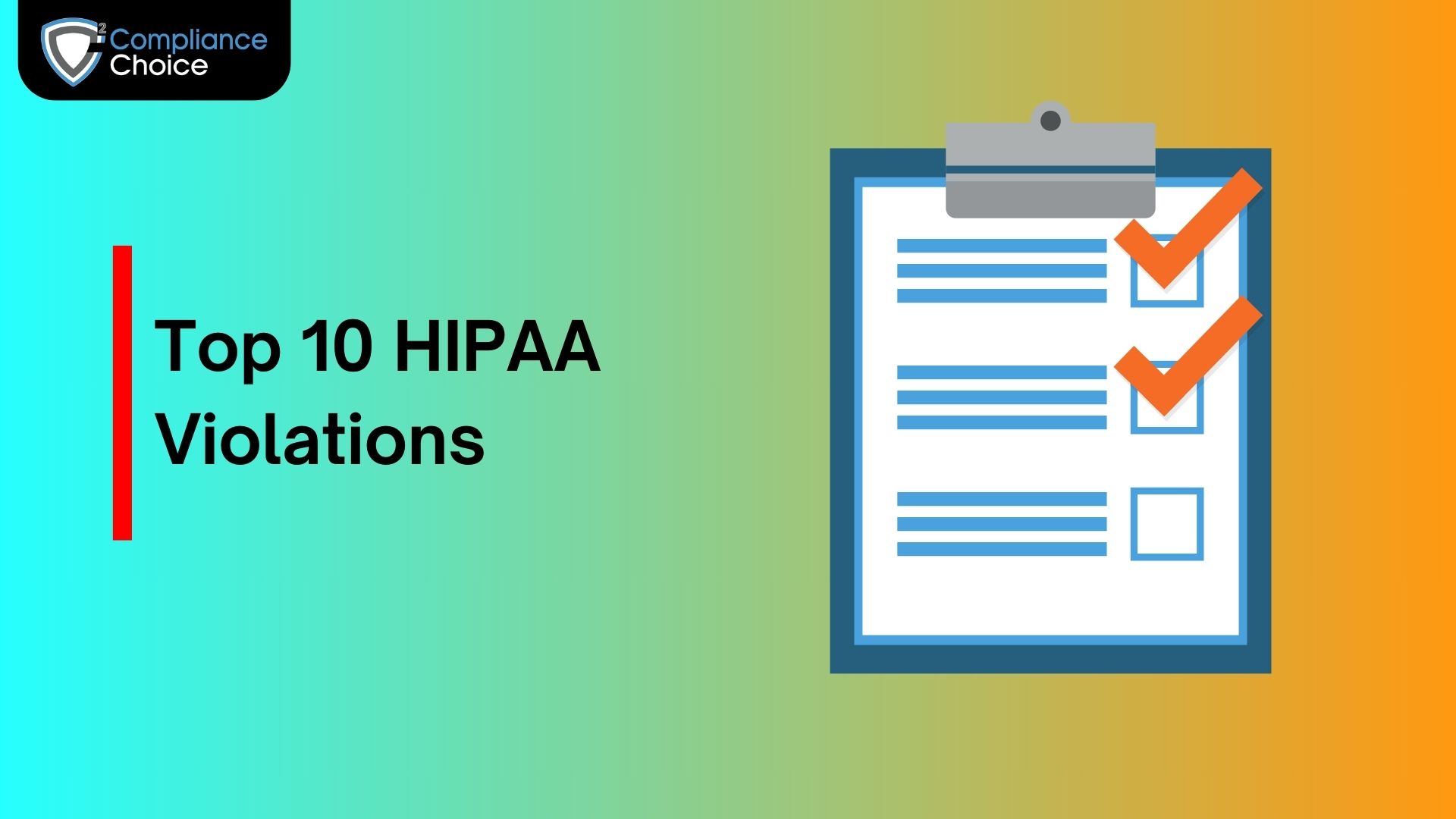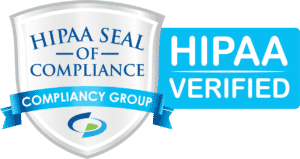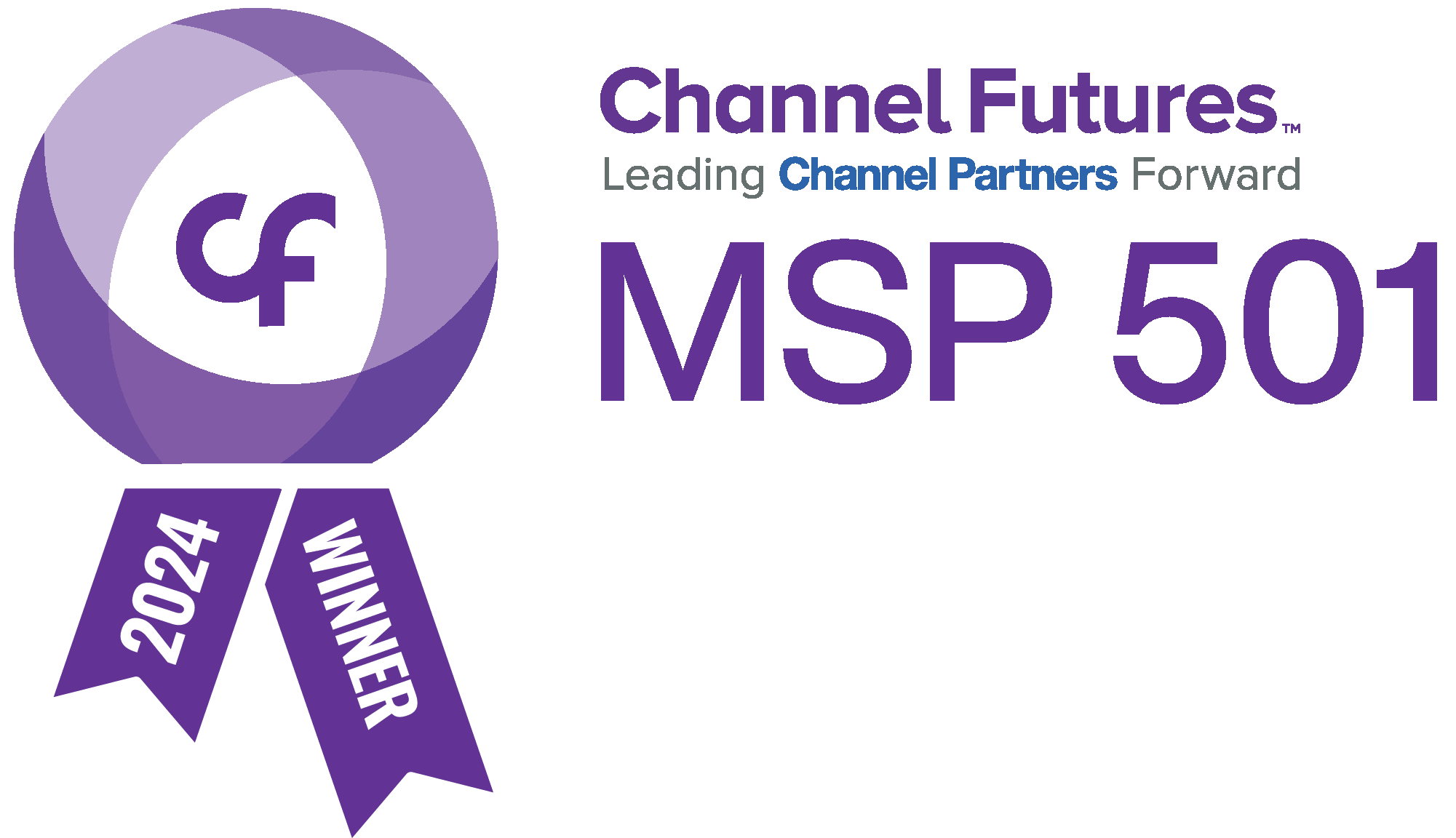The Health Insurance Portability and Accountability Act (HIPAA) is designed to safeguard sensitive patient data in the United States. Healthcare providers, clinics, hospitals, and business associates are responsible for ensuring the confidentiality, integrity, and availability of this information. Failing to comply with HIPAA regulations can result in severe penalties, costly fines, and irreparable damage to your clinic’s reputation. Below are the top 10 HIPAA violations that could cost your clinic thousands, along with real-world cases to help you understand the risks and avoid costly mistakes.
Top 10 Common HIPAA Violations with Real Cases
HIPAA violations are often the result of negligence or a lack of understanding when handling Protected Health Information (PHI). These violations can happen in various ways, from employees sharing patient information improperly to healthcare organizations failing to implement proper security measures. Below are 10 examples of HIPAA violations, along with real-world cases that demonstrate the consequences.
1. Healthcare Employees Divulging Patient Information
HIPAA’s privacy rule ensures that patient information—whether oral, written, or electronic—remains confidential, and individuals have control over who can access it. Healthcare employees who knowingly or unknowingly share PHI without proper consent are committing a violation.
Case: Snooping on Britney Spears’s Medical Records
In 2008, 13 UCLA Medical Center employees were caught accessing Britney Spears’s medical records without authorization. Six physicians were suspended, and the hospital emphasized the importance of confidentiality. This case serves as a reminder of how breaches can lead to legal consequences for staff and severe reputational harm.
2. Medical Records Falling Into the Wrong Hands
When healthcare organizations use portable devices like laptops, tablets, or smartphones to store or transfer PHI, there’s a risk of data loss if these devices are stolen or misplaced. Failing to protect these devices with encryption or passwords leaves sensitive data vulnerable.
Case: Children’s Medical Center, Dallas – $3.2 Million Fine
Children’s Medical Center in Dallas lost 3,800 PHI records when a mobile device containing unencrypted data was stolen. As a result, the hospital was fined $3.2 million, demonstrating the importance of encrypting devices that store PHI to prevent breaches.
3. Sharing PHI Using Non-Secure Methods
HIPAA requires that PHI be transmitted securely. Sharing patient data through unsecured channels like texting, personal email, or non-encrypted file-sharing services is a clear violation of HIPAA standards.
Case: Lanap & Dental Implants – 11,000 Patients Exposed
Lanap & Dental Implants in Pennsylvania posted 11,000 dental records on a torrent site, leaving them accessible for four years. The records were not encrypted but only obfuscated, allowing anyone with basic technical skills to access the data. This breach led to significant consequences for the practice and highlighted the dangers of using insecure methods to share PHI.
4. Posting PHI on Social Media
Healthcare Compliance Risk Assessment providers are prohibited from sharing or posting any patient health information on social media, even without using a patient’s name. Such posts can still lead to identification through other details.
Case: Manasa Health Center Discloses PHI in Response to Negative Review
Manasa Health Center in New Jersey HIPAA Violations by posting a patient’s protected health information in response to a negative online review. Following an OCR investigation, the clinic was fined $30,000 and required to implement a corrective action plan. This case underscores the risks of social media engagement without considering patient privacy.
5. Accessing Patient Files Without Authorization
HIPAA requires that PHI be accessed only by authorized individuals. Even if the intent is not malicious, accessing patient records without proper authorization is still a violation.
Case: Dr. H’s Unauthorized Access
Dr. H, a physician in the U.S., accessed patient records out of curiosity during his downtime, without any malicious intent. Despite not misusing the information, his actions led to HIPAA charges, a four-month jail sentence, and a $2,000 fine. This case emphasizes the need for healthcare professionals to understand and adhere to access controls and HIPAA Violations guidelines.
6. Using Insecure Third-Party Technology
Many healthcare organizations rely on third-party software and applications to collect data or improve services. However, if these third-party tools lack adequate security, they can expose PHI to unauthorized access.
Case: Hospital Websites Sending Patient Data to Facebook
A study revealed that 33 of the top 100 U.S. hospitals used the Meta Pixel tracking tool, unintentionally sending sensitive patient data to Facebook. Although it remains unclear whether this was a direct HIPAA violation, sharing patient information without consent could lead to severe legal consequences. This case underscores the need to vet third-party applications for compliance with HIPAA security standards.
7. Delaying Breach Notification
Under HIPAA Violations, healthcare organizations are required to notify affected individuals about breaches of PHI within 60 days of discovering them. Failing to do so is a violation that can lead to substantial fines.
Case: OSU-CHS – $875,000 Fine for Delayed Notification
Oklahoma State University Center for Health Sciences (OSU-CHS) was fined $875,000 for delaying the notification of a data breach affecting 279,865 individuals’ ePHI. The breach occurred in 2017, but affected individuals were not notified until over a year later, violating HIPAA’s breach notification rule.
8. Lack of Risk Management
HIPAA’s security rule requires organizations to conduct regular risk assessments and implement appropriate security measures to protect electronic PHI (ePHI). Failing to regularly assess and address security risks leaves sensitive data exposed.
Case: Alaska DHSS – $1.7 Million Fine
The Alaska Department of Health and Social Services (DHSS) was fined $1.7 million for failing to implement risk management protocols. The OCR found that DHSS had not conducted regular risk assessments, which left patient information vulnerable to breaches.
9. Lack of Incident Response Plan
A well-defined incident response plan is essential for healthcare organizations to mitigate the impact of data breaches and ensure timely notification of affected individuals.
Case: UMMC – $2.75 Million Fine for Poor Response
The University of Mississippi Medical Center (UMMC) was fined $2.75 million after failing to respond effectively to a data breach involving unsecured ePHI of 10,000 individuals. Despite knowing about the risks, UMMC took no action until after the breach occurred, and they failed to notify affected individuals promptly.
10. Improper Disposal of ePHI
HIPAA requires healthcare organizations to securely dispose of PHI when it is no longer needed. Improper disposal of physical or electronic records can result in severe penalties.
Case: Cornell Prescription Pharmacy – $125,000 Fine
Cornell Prescription Pharmacy in Denver was fined $125,000 for failing to securely dispose of PHI. Documents containing sensitive patient information were not properly destroyed, violating HIPAA’s data disposal rules. This case emphasizes the importance of securely shredding paper records and wiping electronic data to prevent unauthorized access.
Conclusion
HIPAA compliance is vital for protecting patient privacy, safeguarding sensitive data, and avoiding significant financial and reputational consequences. By staying proactive and implementing the best practices outlined above, your clinic can avoid costly violations and protect both your patients and your practice. If you need help implementing HIPAA-compliant policies or ensuring your clinic is fully compliant, visit Compliance Choice for expert guidance and resources. Maintaining the highest standards of data security will protect your clinic, your patients, and your bottom line.




